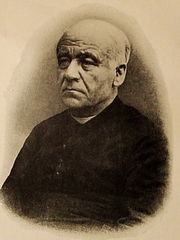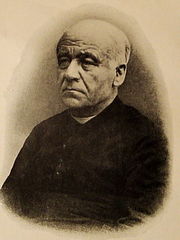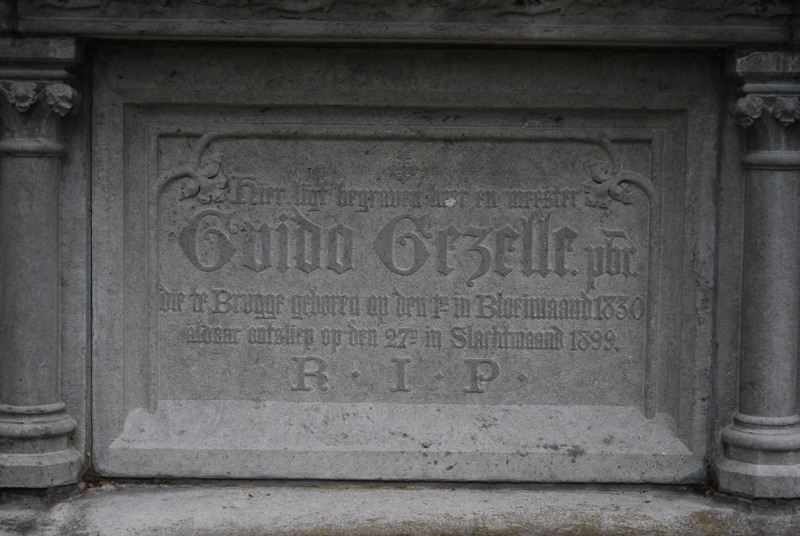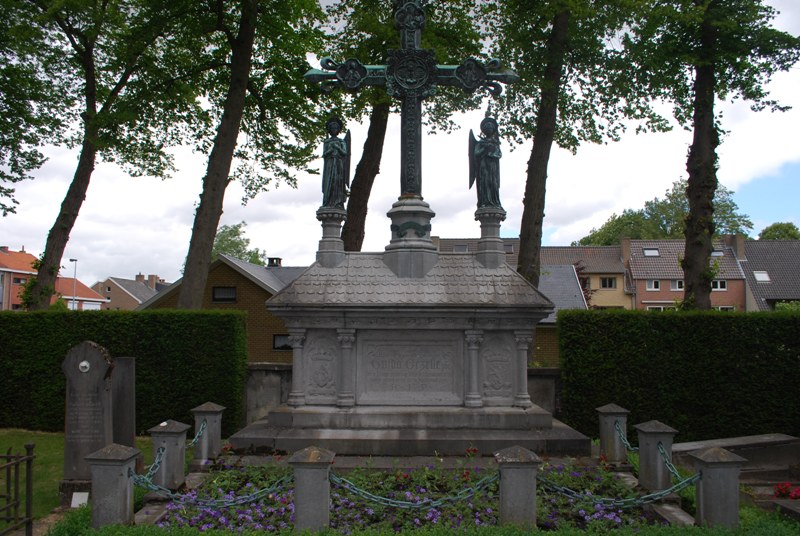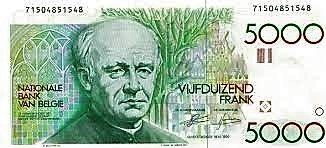Gezelle was born in Bruges in the province of West Flanders to Monica Devrieze and Pieter Jan Gezelle, a gardener. The Flemish writer Stijn Streuvels (Frank Lateur) was a nephew of him. Gezelle was ordained a priest in 1854, and worked as a teacher at the Minor Seminary, Roeselare. He was always interested in all things in English and became the chaplain to the English Convent, Bruges. He died there in a small room, where it is still forbidden to enter. There is a museum of his works close by the English Convent and also a small bar named after him. He tried to develop an independent Flemish language, more or less separate from the general Dutch language, which had certain more "Hollandic" aspects. The Dutch he used in his poems was heavily influenced by the local West Flemish dialect. His works are often inspired by his mystic love towards God and Creation. Later, his poetry was associated with literary Impressionism, and he is considered a forerunner of that movement. Gezelle also was a translator of poetry and prose, most famous now for his translation of Henry Wadsworth Longfellow's Song of Hiawatha, published in 1886. He had already read the original at Roeselare in 1856 and was interested in it because on the one hand, the American Indians fascinated him, and, on the other, he liked its portrayal of Christian missionaries.
For his linguistic mastery, Gezelle is considered one of the most important poets of Dutch literature.
· His works included, Kerkhofblommen (1858)
· Vlaemsche Dichtoefeningen (1858)
· Kleengedichtjes (1860)
· Gedichten, Gezangen en Gebeden (1862)
· Longfellows Song of Hiawatha (translation, 1886)
· Tijdkrans (1893)
· Rijmsnoer (1897)
· Laatste Verzen (1901)
Guido Gezelle ended in 2005 at number 19 in the Flemish version of The Greatest Belgian.
Guido Gezelle was a famous relative of a notable person. He was featured on the 5000 Belgian Franc Banknote.
Gezelle was born in Bruges in the province of West Flanders to Monica Devrieze and Pieter Jan Gezelle, a gardener. The Flemish writer Stijn Streuvels (Frank Lateur) was a nephew of him. Gezelle was ordained a priest in 1854, and worked as a teacher at the Minor Seminary, Roeselare. He was always interested in all things in English and became the chaplain to the English Convent, Bruges. He died there in a small room, where it is still forbidden to enter. There is a museum of his works close by the English Convent and also a small bar named after him. He tried to develop an independent Flemish language, more or less separate from the general Dutch language, which had certain more "Hollandic" aspects. The Dutch he used in his poems was heavily influenced by the local West Flemish dialect. His works are often inspired by his mystic love towards God and Creation. Later, his poetry was associated with literary Impressionism, and he is considered a forerunner of that movement. Gezelle also was a translator of poetry and prose, most famous now for his translation of Henry Wadsworth Longfellow's Song of Hiawatha, published in 1886. He had already read the original at Roeselare in 1856 and was interested in it because on the one hand, the American Indians fascinated him, and, on the other, he liked its portrayal of Christian missionaries.
For his linguistic mastery, Gezelle is considered one of the most important poets of Dutch literature.
· His works included, Kerkhofblommen (1858)
· Vlaemsche Dichtoefeningen (1858)
· Kleengedichtjes (1860)
· Gedichten, Gezangen en Gebeden (1862)
· Longfellows Song of Hiawatha (translation, 1886)
· Tijdkrans (1893)
· Rijmsnoer (1897)
· Laatste Verzen (1901)
Guido Gezelle ended in 2005 at number 19 in the Flemish version of The Greatest Belgian.
Guido Gezelle was a famous relative of a notable person. He was featured on the 5000 Belgian Franc Banknote.
Advertisement
Advertisement
